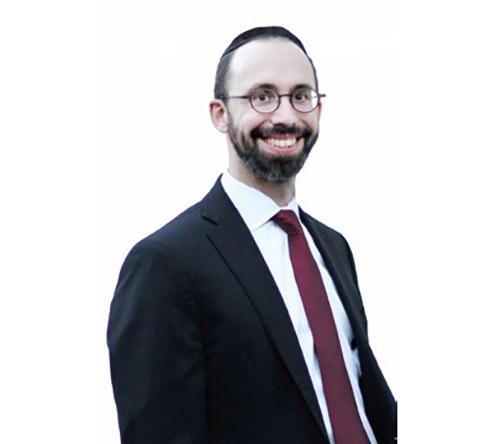
Before I gave my parsha shiur late Thursday night, I was wiped out from Sukkos and all the lectures I gave on Yom Tov, and I expected sparse attendance. “Maybe I should skip this week,” I thought. Nevertheless, I pushed myself to prepare, and while it was a smaller crowd, I gave it my best. The next morning, an old friend who is a rabbi in a different community called me. “Baruch, I was searching on Torah Anytime for a shiur on the parsha and I saw your name, so I downloaded it. It was fabulous! Can you tell me about the sources you used? I want to use this in my Shabbos drasha.”
Wow, I thought to myself. Hashem is sending me a message. I made the effort to spread Torah and inspired another rav and who knows how many others through him. After Shabbos, my friend sent me a text that his drasha went very well. This whole interaction gave me a tremendous insight into Parshas Noach.
Hashem instructed Noach to build a teiva (ark) to save himself and his family from the bubbling hot waters of the flood. Indeed, anything outside the teiva was destroyed. However, Chazal tell us that Eretz Yisrael was unaffected by the flood! So why didn’t Hashem send Noach and all the animals to Eretz Yisrael to be spared? Why did Noach need to become the caretaker of the largest zoo in world history, spending day and night feeding all the animals of the world?
Rav Dessler, expounding on Rashi, explains that the Torah refers to Noach as a tzadik, a righteous person, while Avraham is referred to as a chasid, someone who does chesed (kindness). The difference between a tzadik and a chasid is the latter goes above and beyond the call of duty for others. Hashem had informed Noach of the upcoming destruction of the world, while Avraham was informed of the upcoming destruction of Sodom. Yet their reactions were very different. Noach built a teiva to save himself and his family, giving up on the wicked people, while Avraham prayed to Hashem to spare the lives of the people of Sodom. The Lev Simcha notes that Noach was given 100 years to build the teiva, to convince the world in that time to change its ways. However, Noach only spoke to those who approached and inquired why he was building this massive boat, while Avraham traveled far and wide to tell people about Hashem.
Noach was righteous, but he did not measure up to Avraham in chesed. Chazal tell us, “Olam chesed yibaneh”—Hashem built the world with chesed. My rebbe, Rav Asher Arieli, related that since the teiva was a “re-creation of the world,” it had to be built on chesed. That’s why Noach had to be busy with chesed the entire time.
Looking further, we see the decree to destroy the world was because of the crimes of chamas—extortion and immoral relations (in both men and beasts). Both of these crimes are rooted in selfishness and a lack of chesed.
Since the world lacked chesed, it was essential for Noach to build a teiva for himself and all the animals of the world, so he and his family would be literally steeped in chesed, caring for others day and night. Even though Eretz Yisrael was spared, Noach and his family did not merit to be saved unless they had the protection of chesed.
Klal Yisrael as a people possess three special characteristics: compassion, shame as a result of sin, and benevolence (chesed). The Gemara in Yevamos tells us chesed was inserted into our DNA by Avraham. All Jews possess this quality of chesed. We are constantly presented with opportunities to help others, but sometimes we might think our actions won’t help: “I tried presenting a shidduch to that family and they said no. I’m sure they will turn down the next one, so why bother.” “Last week I picked up groceries for my neighbors and they didn’t even say thank you. Why do it again?” “Why bother giving my $10 gift when they need to raise a million dollars?”
Similar thinking may have been on Noach’s mind. “Why bother talking to them—they don’t want to listen!” Yet, we are descendants of Avraham, who left no stone unturned in the pursuit of chesed. I was going down that road myself in my thoughts of skipping my Thursday night shiur. Hashem sent me a message that it was worth the extra mile.
Let’s always remember: we have so many opportunities, every day of the week, to do an act of chesed. Each act of chesed helps sustain the world!!
By Rabbi Baruch Bodenheim
Rabbi Baruch Bodenheim is the associate rosh yeshiva of Passaic Torah Institute (PTI)/Yeshiva Ner Boruch. PTI has attracted people from all over northern New Jersey, including Teaneck, Bergenfield, Paramus, Rockaway and Fair Lawn. He initiated and continues to lead a multi-level Gemara learning program. Recently he has spread out beyond PTI to begin a weekly beis midrash program with in-depth chavrusa learning in Livingston and Springfield. This year he joined Heichal Hatorah in Teaneck as a Gemara iyun rebbe. His email is rb@ptiweb.org.










